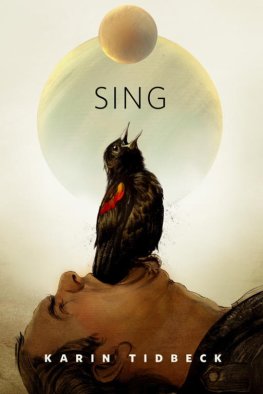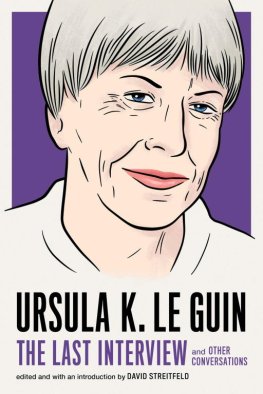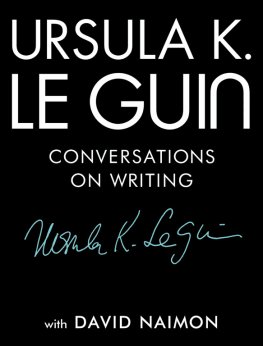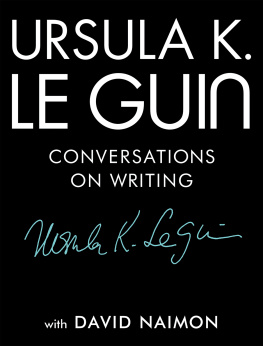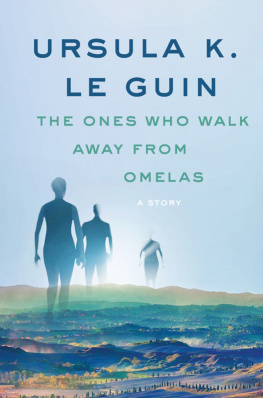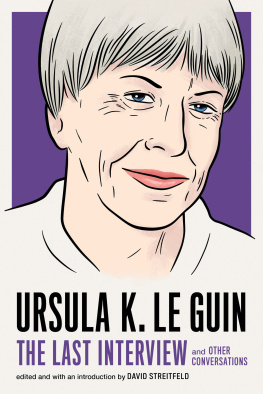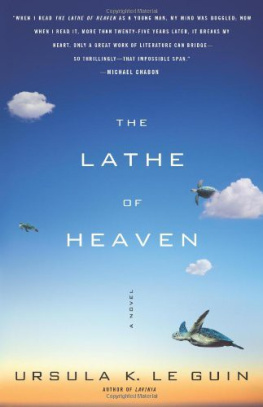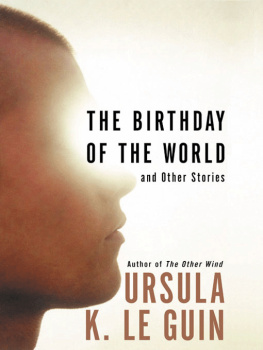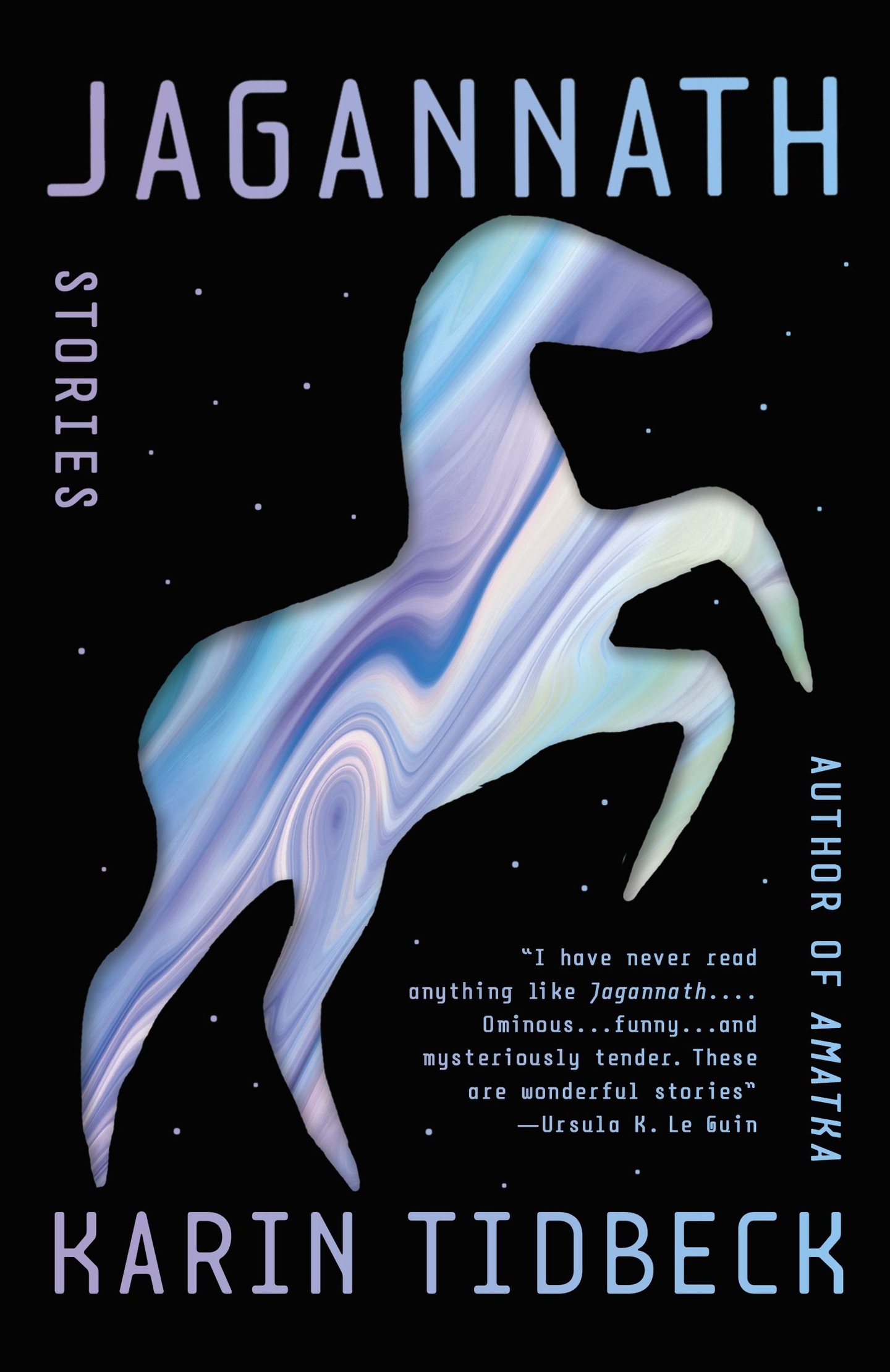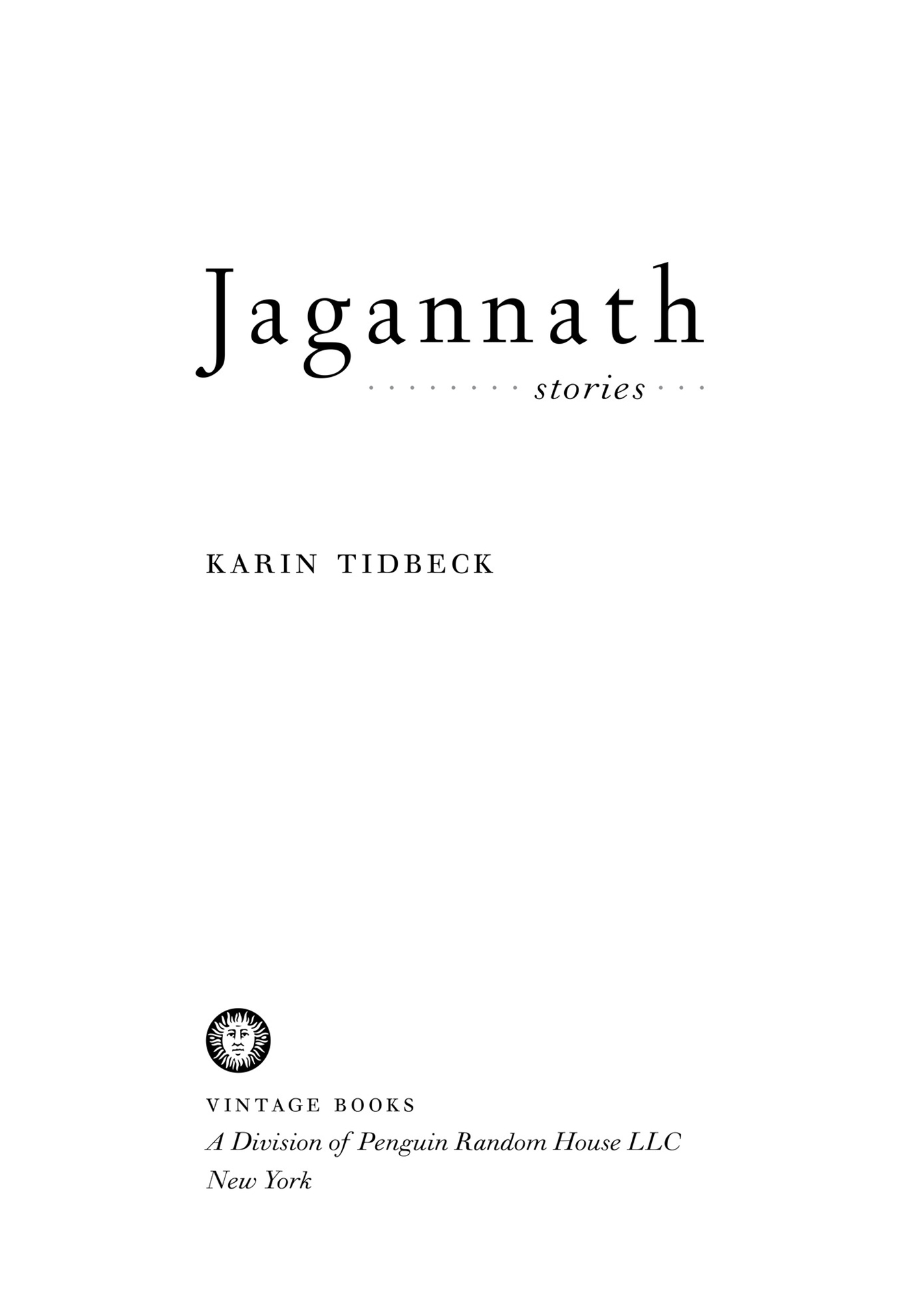All rights reserved. Published in the United States by Vintage Books, a division of Penguin Random House LLC, New York, and distributed in Canada by Random House of Canada, a division of Penguin Random House Canada Limited, Toronto. Originally published in paperback in the United States by Cheeky Frawg Books, Tallahassee, Florida, in 2012.
Vintage and colophon are registered trademarks of Penguin Random House LLC.
This is a work of fiction. Names, characters, places, and incidents either are the product of the authors imagination or are used fictitiously. Any resemblance to actual persons, living or dead, events, or locales is entirely coincidental.
constitutes an extension of this copyright page.
The Cataloging-in-Publication Data is on file at the Library of Congress.
FOREWORD
Elizabeth Hand
Its rare, almost unheard of, to encounter an author so extraordinarily gifted she appears to have sprung full-blown into the literary world, like Athena from the head of Zeus. But we live in extraordinary times, and with Karin Tidbeck we appear to have gotten the artist our times deserve.
A hundred years ago, the great fantasist Lord Dunsany wrote of the world beyond the fields we know. With the ascent of fantasy as the dominant popular literary form of the early twenty-first century, weve seen that world grow increasingly gentrified, commodified, and mainstreamed. This is a long way of saying that when it comes to speculative fiction, it takes a lot to surprise me. I cant think of when I last read a collection that blew me away the way that Jagannath has, or one thats left me somewhat at a loss to describe just how strange and beautiful and haunting these tales are.
Of course, Tidbecks appearance on the literary scene isnt quite as sudden as it seems to me. Shes been publishing for more than a decade, and many of the stories contained herein first appeared in her native Sweden, where they were collected in Vem r Arvid Pekon? English translations of several of these tales have been published in U.S. and U.K. magazines and anthologies. In 2010 she attended the prestigious Clarion Writers Workshop, a longtime proving ground for writers who have gone on to become major voices in the field. Shes also one of the few writers of the fantastic to have received a grant from the Swedish Authors Fund.
Yet theres still something startling about the presence of so many remarkable pieces in such a deceptively slender volume. In its feverish intensity and sublimely estranging effects, her work sometimes evokes that of James M. Tiptree, Jr. (Alice Sheldon); in particular, Aunts and the title story can hold their own with Tiptrees classic depiction of alien consciousness, Love Is the Plan the Plan Is Death.
But Tidbecks writing is more generous and far more emotionally engaged than Tiptrees. Even when the inexplicable occurs, as it does throughout these tales, a reader responds as Tidbecks characters do, with an underlying empathy. Their sense of loss or astonishment or melancholy resignation never trumps the deeper sense of recognition that, as Hamlet observed, there are more things in heaven and earth than are dreamt of in our philosophy. As in Augusta Prima, where the title character asks,
I have to knowWhat is the nature of the world?
The djinneya smiled with both rows of teeth. Which one?
In a 2012 interview with Strange Horizons, Tidbeck spoke of the crepuscular (real) world where she lives in Sweden:
We spend a lot of time in twilight, which is a liminal condition, a no-mans-land. The light has an eerie and melancholy quality. I suppose this has carried over into my writing as well, both in the sense of the eerie and melancholy, but also the sensation of having stepped sideways into another world where the sun has stopped in its course.
This liminal sense of transcending borders holds true for all the stories in Jagannath, which span folktale, fantasy, magic realism, science fiction, and, in Pyret, a Borgesian taxonomy of an imaginary creature. Many of these tales are disturbing; they are also darkly funny and, to this Americans sensibility at least, genuinely strange. Tidbeck shares with the great Robert Aickman a gift for invoking a profound sense of disassociation from the world we think we know, pointing us toward a breach through which any number of unimaginable things might (and do) emerge. More than anything, there is a palpable absence in many of her stories: of loved ones (especially parents); of the passage of time; of knowledge of the very world the characters inhabit.
Still, nature abhors a vacuum, even in a parallel plane of existence, and unforeseen things emerge to fill that void. Reindeer Mountain, perhaps my favorite of all the stories collected here, is a tour de force of the uncanny. Who Is Arvid Pekon? may make you reluctant to ever pick up a telephone again, and Britas Holiday Village reminds one how unsettling a resort in the off-season can be. The narrator of Cloudberry Jam recounts a conversation with the creature she has made in a tin can:
Why did you make me? you said.
I made you so that I could love you, I said.
Similarly, Karin Tidbeck has written these stories so that readers may love them. I certainly do. And I suspect you will, too.
Beatrice
FRANZ HILLER , a physician, fell in love with an airship. He was visiting a fair in Berlin to see the wonders of the modern age that were on display: automobiles, propeller planes, mechanical servants, difference engines, and other things that would accompany man into the future.
The airship was moored in the middle of the aviation exhibit. According to the small sign by the cordon, her name was Beatrice.
In contrast to the large commercial airships, Beatrice is built for a maximum of two passengers. An excellent choice for those who live far from public airship masts or do not wish to be crowded in with strangers. Manufacturing will start soon. Order yours today, from Lefleur et Fils!
Franz had had no previous interest in airships. He had never seen one up close, let alone traveled in one. Neither had he any interest in love. At thirty, he was still a bachelor; his prospects were good, but he had been profoundly disinterested in any potential wives his parents had presented to him. His mother was becoming more and more insistent, and sooner or later Franz would have to make up his mind. But then he found himself here, in Berlin, facing this airship: Beatrice, her name tolling like a bell.


